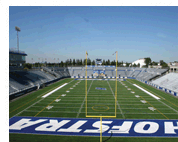A Life Of Evaluating Talent
Oct 01, 2013Posted by james
The typewritten newsletter dated March 22, 1966 contains scouting reports on high school basketball players. This issue thanks subscribers for their loyalty during the first year of publication during which demand doubled to 60 college coaches.
The issue is hidden inside a thick three-ring binder that is buried in the cluttered Manhattan apartment of Howie Garfinkel. Howie’s life is basketball—as a scout, a coach, a creator of a summer camp and a director of clinics.
About 70 years ago, this son of a garment worker, was a modest high school player. He could shoot a two-handed set shot but he didn’t have the moves. He admits that he didn’t work at his game. But his passion for basketball moved him in another direction. He became a compiler of information about players, and he sent this information to college coaches. He also was the originator of what has become a staple of basketball development and recruiting—the summer camp with guest coaches and showcase games.
During the mid-1960s, Howie published a magazine (High School Basketball Illustrated) that profiled players and teams in New York and northern New Jersey. An assistant coach at The Citadel obtained a copy and suggested to Howie that he open his own scouting service. He did, eventually, and he also opened the Five-Star Basketball Camp. For the second year of the camp, he hired a young Bobby Knight at $50 per day as his top instructor. The camp was pure basketball—teaching, coaching, playing and no nonsense—and it drew top schoolboy talent from around the country.
Eight years ago, Howie sold his stake in the camp. But he remains in the game he always has loved. Last year, he organized his sixth annual Clinic to End All Clinics where Division I coaches discussed strategy with coaches from other colleges and high schools. He is co-founder of the New York City Basketball Hall of Fame and he evaluates city players for the selection advisory committee of the McDonald’s All-American Game.
From an early age, Howie Garfinkel set a course for his life and happily followed it. He still types his player evaluations on an IBM typewriter. He uses his phone but will not go near the internet. He also still has his binders and the well-organized scouting reports that made him a household name in basketball long before e-mail and ESPN.
Sometimes, it is best to evaluate talent in sports (and business) the old fashioned way.
Jim









